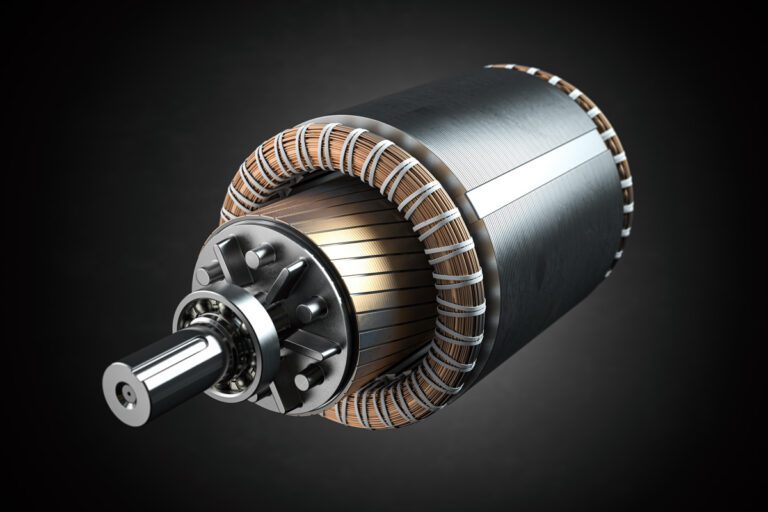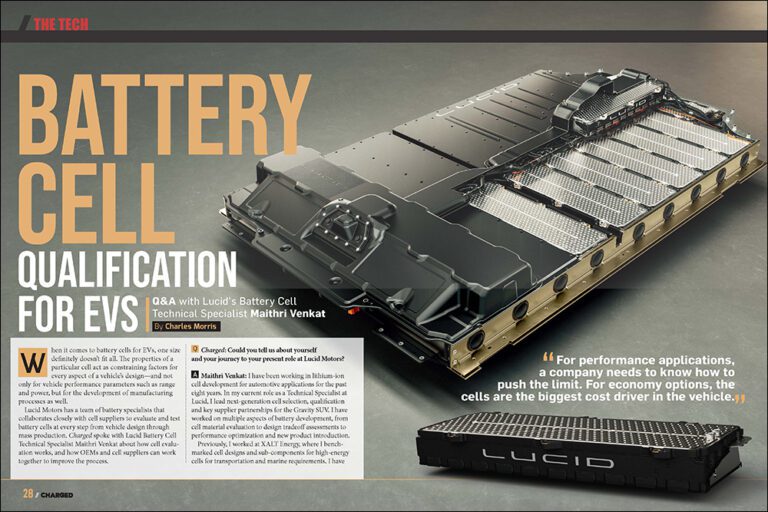Q&A with Wildcat President and CEO Mark Gresser. EV battery technology is advancing rapidly—it seems like every few days we read about a scientific breakthrough that will enable safer, cheaper, smaller and more energy-dense batteries. However, the road from the lab to the auto dealership is a long one—it typically takes several years of testing… Read more »
Search Results Found For: "Nth cycle"
Synop is one of the few doing V2G projects commercially: Q&A with co-founder
Q&A with Synop co-founder Gagan Dhillon Vehicle-to-grid (V2G) technology is a hot topic—many EV industry execs say it has the potential to transform the transport and energy industries (we hear the term “game-changing” a lot). However, others have told Charged that they expect it to be more of a niche technology, useful only in certain… Read more »
How HummingbirdEV uses modular platforms and micro-factories to lower the cost of commercial EVs
Q&A with HummingbirdEV CEO Rakesh Koneru. The commercial EV market is hot—a bit too hot for some. Over the past decade, we’ve seen dozens of startups come and go. Many of these built promising vehicles, but starved out while waiting for customers to place volume orders. California-based HummingbirdEV, which was founded in 2015, is taking… Read more »
Vianode study finds low emissions for graphite battery anode production
Norway-headquartered Vianode, a manufacturer of synthetic graphite for battery anodes, has released the results of a life cycle assessment (LCA) of its planned industrial-scale production. A typical EV battery pack contains around 70 kg of graphite, which represents up to 40% of battery cell emissions, based on average present-day production. Vianode says the results represent… Read more »
MIT chemists develop an organic battery cathode for EVs
MIT researchers have designed a new lithium-ion battery using an organic cathode that contains no cobalt or nickel. In a new study, the researchers showed that this material an conduct electricity at similar rates as cobalt batteries, and could be produced at much lower cost. The new battery also has comparable storage capacity and charges… Read more »
Ferroglobe and Coreshell to produce battery-grade metallurgical silicon for EVs
Ferroglobe, a producer of silicon metal and ferroalloys, and Coreshell, a US-based battery technology company, have signed a memorandum of understanding under which they plan to produce battery-ready metallurgical silicon for the development of low-cost, high-range EV batteries. Automakers are keen to use more silicon in anodes, because it can potentially store up to 10… Read more »
MP Materials has an ambitious US rare earth supply chain strategy to fuel EV innovation
Q&A with MP Materials’ Matt Sloustcher. There’s much hand-wringing in the press these days about battery raw materials such as lithium, cobalt and nickel. However, save some of your anxiety for rare earth materials. These elements (which are not particularly rare, but seemed so to the scientists who named them back in the 18th century)… Read more »
Redwood Materials breaks ground on South Carolina EV battery recycling plant
Redwood Materials, the battery recycling firm run by Tesla alum JB Straubel, recently broke ground on a new facility near Charleston, South Carolina. The plant will complement the company’s Nevada materials location, and will be used to recycle, refine and remanufacture anode and cathode components. Also like Redwood’s Nevada site, the new Battery Materials Campus… Read more »
Battery cell qualification for EVs: Lucid’s cell specialist discusses the complicated process
Q&A with Lucid’s Battery Cell Technical Specialist Maithri Venkat. When it comes to battery cells for EVs, one size definitely doesn’t fit all. The properties of a particular cell act as constraining factors for every aspect of a vehicle’s design—and not only for vehicle performance parameters such as range and power, but for the development… Read more »
Amprius offers samples of its new 400 Wh/kg silicon anode battery platform
Amprius Technologies has announced an expansion of its product portfolio of silicon anode batteries. The new SiCore batteries are based on a proprietary silicon anode material system. Amprius claims its batteries deliver performance that surpasses that of today’s state-of-the-art graphite-based cells: specific energy up to 400 Wh/kg, and cycle life up to 1,200 cycles at… Read more »













